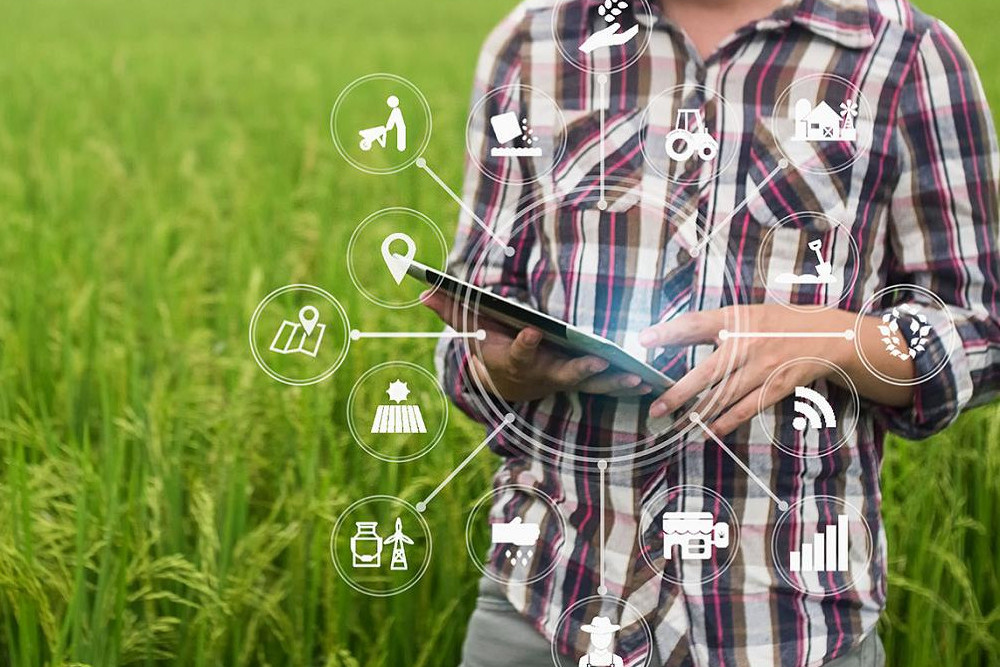
Have you ever heard of precision farming? Do you know how much you could save with it? In all sectors, especially in agriculture, the best source of income is certainly not to spend money. On the other hand, we live in a historical period in which agriculture is experiencing a severe crisis, both with regard to the constant battle against climate change, and for what is inherent in the sales channels and market position. Precision agriculture, especially in olive growing, has the ability to counteract at least the first problem and, consequently, also partially solve the second of these. Let’s see what precision farming consists of, what it is and what its advantages and disadvantages can be in its application.
Precision agriculture: what is it?
If we wanted to give a brief definition of precision agriculture, we could say that it is a type of agriculture in which every agronomic practice is performed, precisely, precisely. But to be precise, tools are obviously needed, right?
Therefore, precision agriculture can be defined as the management strategy of a farm that takes advantage of technological tools (software and hardware) to collect data, useful for a more efficient use of all production factors: water, plant protection products, fertilizer, diesel fuel, etc.
Using production factors more efficiently means saving! It means, therefore, to use only what is strictly necessary for the plant, the soil and all that is part of the farm’s resources.
The most striking example is ‘drop by drop’ irrigation, which is a type of irrigation in which, instead of throwing water along the furrow and inevitably dispersing it in evaporation and percolation, the plant is supplied only with the quantity necessary for it. for his vital needs.
And in olive growing instead?
Precision agriculture in olive growing
Precision agriculture can be applied, with different methods and results, to any crop, even in olive growing. And it is precisely in olive growing that the best effects can be found. The olive trees, unfortunately, are plants with a very low resilience. In fact, climate changes in recent years and adverse weather events have had a very negative impact on olive groves and therefore on olive production.
When we talk about atmospheric events, in reality, we are not just referring to rain, snow and hail, but also to what they can bring: fungal diseases, such as the peacock eye, bacterial pathologies, such as the mange of the olive tree , pathogenic insects, such as the moth and the olive fly.
All this has inevitably caused a lack of income for the farmer, or at least a lower income than normal.
Being able to have data, to be able to know certain adversities in advance, to be able to intervene in time against unfavorable factors makes it possible to protect production through prevention and to ensure early collection revenues.
Not to mention, moreover, the quality of agricultural products. A quality that has repercussions on the conquest of the market and on a greater payment, by the commercial company and / or the consumer, for those same products.
Advantages and Disadvantages
Like all agronomic practices, it cannot be said that agriculture is an exact science, much less that it leads to obtaining only advantages. Especially in an agricultural reality like the Italian one, it is necessary to analyze both the strengths but also those of weakness so that we can find the best solution for the management of our own farm.
It is also true that, in olive growing, precision farming is clearly advantageous and, unless it is an agricultural reality with a poor number of olive trees, the considerable savings must absolutely be taken into consideration.
Among the advantages, we can mention:
- Sustainable increase in agricultural productivity and farmers’ incomes
- Search for new forms of resilience of agricultural ecosystems, so as to adapt to climate change
- Reduction of greenhouse gases (where possible).
- Sensors in the field and on machinery
- DronesSatellite images
- Decision support systems
- Quality control sensors.
Among the disadvantages, however, we have:
- Big Data
- AnalyticsDematerialization systems
- Integrated traceability
- Logistics optimization systems
Precision agriculture in olive growing
Certainly precision farming is now a reality that you cannot turn to on the other side. It is a must for all the agricultural world to compare themselves with what temporal advancement and technological innovation make available.
And it is unthinkable to be able to cope with new changes while remaining indifferent, especially if these changes affect the productions and earnings of the farm.
In a context such as the present one, therefore, agriculture, and above all olive growing, deserve to be able to obtain the right results in terms of quality and income and this is only possible with the knowledge of data and information that no one, if not the precision agriculture, can give us.
